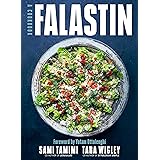Many people find themselves contemplating significant dietary shifts. Perhaps a health scare prompts change. Or maybe a growing awareness of ethical and environmental impacts. Whatever the motivation, the move towards a plant-based diet often begins with questions. You just watched a compelling video highlighting the 10 proven health benefits of going vegetarian. That video provided an excellent overview. This article expands on those insights. It delves deeper into why a vegetarian or plant-based diet can truly make you healthier. We will explore key areas. Scientific data underpins these discussions.
Embracing the Vegetarian Lifestyle: A Healthier Path
A vegetarian diet excludes meat. This includes poultry and seafood. Different forms exist, each with varying exclusions. Lacto-ovo vegetarians eat dairy and eggs. Lacto-vegetarians consume dairy but no eggs. Vegans avoid all animal products. Each choice emphasizes plant-derived foods. These diets focus on fruits, vegetables, grains, legumes, nuts, and seeds. This dietary pattern offers robust health advantages.
Significant Cardiovascular Health Improvements
Heart disease remains a leading global killer. A vegetarian diet greatly supports heart health. It is typically low in saturated fat. It often contains no dietary cholesterol. These factors are crucial for cardiac wellness. Studies demonstrate notable reductions in heart disease risk. For instance, a meta-analysis from the *Journal of the American Heart Association* indicated vegetarians experience a 25% lower risk of ischemic heart disease. This benefit is compelling. Plant-based eating helps maintain healthy blood pressure. It also lowers LDL (“bad”) cholesterol levels. These are key markers for cardiovascular well-being.
High fiber content further assists heart health. Fiber helps to sweep cholesterol from the body. It also regulates blood sugar. Regular consumption of fruits and vegetables provides powerful antioxidants. These compounds protect heart cells from damage. The cumulative effect is a stronger, healthier cardiovascular system. Many individuals report improved energy and stamina. This is often linked to better circulation. A plant-rich diet truly benefits the heart.
Effective Weight Management and Prevention of Obesity
Obesity rates are climbing worldwide. Vegetarian diets offer a natural strategy for weight control. They are generally lower in calories. Yet, they are rich in nutrients. Their high fiber content promotes satiety. This means you feel full longer. This reduces overall calorie intake. Research published in *Nutrition Reviews* found vegetarians typically have a lower Body Mass Index (BMI). They also experience less weight gain over time. Studies indicate an average weight loss of 4-5 kg when switching to a plant-based diet. This occurs even without strict calorie counting. The emphasis is on whole, unprocessed foods. These foods are naturally less energy-dense. This makes weight management more achievable.
Furthermore, vegetarians often consume more water-rich foods. These include fruits and vegetables. Such foods add bulk without excess calories. This supports healthy metabolic function. Consistent, healthy eating habits form naturally. Individuals often gain better control over their food choices. This leads to sustainable weight maintenance. It is an effective approach for long-term health.
Reduced Risk of Type 2 Diabetes
Type 2 diabetes is a major health concern. Plant-based diets show significant protective effects. They are rich in complex carbohydrates. These carbohydrates lead to stable blood sugar levels. They prevent sharp spikes and crashes. High fiber content further enhances this stability. It improves insulin sensitivity. A systematic review published in *PLOS Medicine* concluded that plant-based diets reduce the risk of Type 2 diabetes by approximately 30%. This is a substantial finding. Such diets often feature lower glycemic index foods. These foods release sugar into the bloodstream slowly. This steady release prevents insulin resistance. Many individuals with pre-diabetes can reverse their condition. They simply adopt a vegetarian eating pattern. It’s a powerful tool for metabolic health.
Protection Against Certain Cancers
Diet plays a critical role in cancer prevention. Vegetarian diets are packed with cancer-fighting compounds. These include antioxidants, phytochemicals, and vitamins. They are found in abundance in fruits and vegetables. These substances combat cellular damage. They reduce chronic inflammation. Chronic inflammation is a known cancer precursor. Research from the *World Cancer Research Fund* suggests lower rates of certain cancers among vegetarians. For example, a 2017 study found a 22% lower risk of colorectal cancer. This was observed in individuals following a plant-based diet. Other studies indicate reduced risks for breast and prostate cancers. The protective mechanisms are multi-faceted. They involve improved gut health and antioxidant defense. Eating a rainbow of plant foods provides diverse protective agents. It creates a robust internal defense system.
Enhanced Digestive Health and Gut Microbiome Diversity
A healthy gut is foundational to overall health. Vegetarian diets excel in promoting digestive wellness. They are exceptionally high in dietary fiber. Fiber acts as a prebiotic. It feeds beneficial gut bacteria. A diverse gut microbiome is crucial. It supports immunity and nutrient absorption. Studies published in *Gut Microbes* reveal that vegetarians often possess a richer microbial diversity. This diversity is linked to better digestive function. It also enhances mood and cognitive health. Regular bowel movements are common benefits. Reduced instances of constipation occur. The complex array of plant compounds supports gut integrity. It fosters a thriving internal ecosystem. This contributes significantly to overall vitality.
Key Nutritional Considerations for a Vegetarian Diet
Adopting a vegetarian diet requires thoughtful planning. Ensuring adequate nutrient intake is vital. Certain nutrients need attention. Protein, iron, calcium, vitamin B12, and omega-3 fatty acids are common concerns. However, plant-based sources for all these nutrients are readily available. Careful food choices make a well-rounded diet achievable.
Sourcing Essential Nutrients on a Plant-Based Diet
Protein is easily obtained from plants. Legumes like lentils and beans are excellent sources. Tofu, tempeh, and edamame also provide complete protein. Nuts, seeds, and whole grains contribute significantly. Iron can be found in spinach, lentils, fortified cereals, and dark chocolate. Pairing iron-rich plants with vitamin C sources improves absorption. Examples include bell peppers and citrus fruits. Calcium is abundant in fortified plant milks. It is also in leafy greens like kale and broccoli. Sesame seeds and almonds offer calcium too. Vitamin B12 is the one nutrient not naturally occurring in plants. Vegetarians should use fortified foods. B12 supplements are a reliable alternative. Omega-3 fatty acids are in flaxseeds, chia seeds, and walnuts. Algal oil supplements provide DHA and EPA directly. A diverse plant-based diet meets all nutritional needs.
Making a Smooth Transition to Vegetarian Eating
Switching to a vegetarian diet can be a gradual process. Small steps often lead to lasting change. Begin with ‘meatless Mondays.’ Incorporate more plant-based meals weekly. Explore new cuisines like Indian or Mediterranean. These styles naturally feature many vegetarian dishes. Focus on whole, unprocessed foods. Fresh fruits, vegetables, and whole grains should dominate. Seek support from vegetarian communities. Online resources offer abundant recipes and tips. Consulting a registered dietitian can be beneficial. They can help create a balanced meal plan. This ensures all nutritional requirements are met. The journey to a plant-based diet is rewarding. It offers immense health benefits of going vegetarian. It leads to a healthier, more vibrant life.











